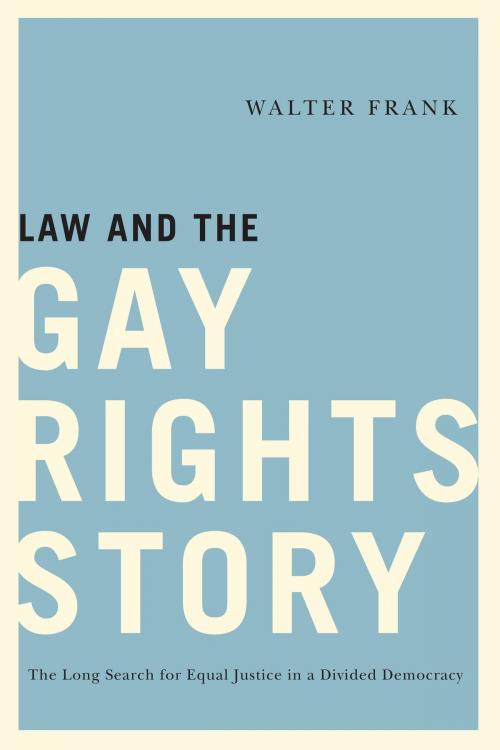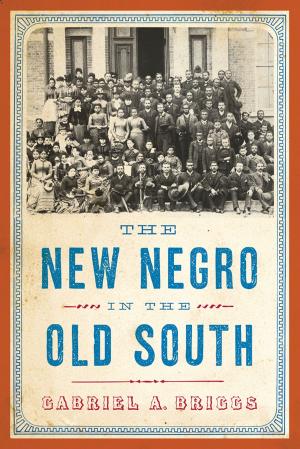Law and the Gay Rights Story
The Long Search for Equal Justice in a Divided Democracy
Nonfiction, Reference & Language, Law, Legal History, Social & Cultural Studies, Social Science, Gender Studies, Gay Studies| Author: | Walter Frank | ISBN: | 9780813573304 |
| Publisher: | Rutgers University Press | Publication: | August 5, 2014 |
| Imprint: | Rutgers University Press | Language: | English |
| Author: | Walter Frank |
| ISBN: | 9780813573304 |
| Publisher: | Rutgers University Press |
| Publication: | August 5, 2014 |
| Imprint: | Rutgers University Press |
| Language: | English |
For much of the 20th century, American gays and lesbians lived in fear that public exposure of their sexualities might cause them to be fired, blackmailed, or even arrested. Today, they are enjoying an unprecedented number of legal rights and protections. Clearly, the tides have shifted for gays and lesbians, but what caused this enormous sea change?
In his gripping new book, Walter Frank offers an in-depth look at the court cases that were pivotal in establishing gay rights. But he also tells the story of those individuals who were willing to make waves by fighting for those rights, taking enormous personal risks at a time when the tide of public opinion was against them. Frank’s accessible style brings complex legal issues down to earth but, as a former litigator, never loses sight of the law’s human dimension and the context of the events occurring outside the courtroom.
Chronicling the past half-century of gay and lesbian history, Law and the Gay Rights Story offers a unique perspective on familiar events like the Stonewall Riots, the AIDS crisis, and the repeal of “Don’t Ask, Don’t Tell.” Frank pays special attention to the constitutional issues surrounding same-sex marriage and closely analyzes the two recent Supreme Court cases addressing the issue. While a strong advocate for gay rights, Frank also examines critiques of the movement, including some coming from the gay community itself. Comprehensive in coverage, the book explains the legal and constitutional issues involved in each of the major goals of the gay rights movement: a safe and healthy school environment, workplace equality, an end to anti-gay violence, relationship recognition, and full integration into all the institutions of the larger society, including marriage and military service. Drawing from extensive archival research and from decades of experience as a practicing litigator, Frank not only provides a vivid history, but also shows where the battle for gay rights might go from here.
For much of the 20th century, American gays and lesbians lived in fear that public exposure of their sexualities might cause them to be fired, blackmailed, or even arrested. Today, they are enjoying an unprecedented number of legal rights and protections. Clearly, the tides have shifted for gays and lesbians, but what caused this enormous sea change?
In his gripping new book, Walter Frank offers an in-depth look at the court cases that were pivotal in establishing gay rights. But he also tells the story of those individuals who were willing to make waves by fighting for those rights, taking enormous personal risks at a time when the tide of public opinion was against them. Frank’s accessible style brings complex legal issues down to earth but, as a former litigator, never loses sight of the law’s human dimension and the context of the events occurring outside the courtroom.
Chronicling the past half-century of gay and lesbian history, Law and the Gay Rights Story offers a unique perspective on familiar events like the Stonewall Riots, the AIDS crisis, and the repeal of “Don’t Ask, Don’t Tell.” Frank pays special attention to the constitutional issues surrounding same-sex marriage and closely analyzes the two recent Supreme Court cases addressing the issue. While a strong advocate for gay rights, Frank also examines critiques of the movement, including some coming from the gay community itself. Comprehensive in coverage, the book explains the legal and constitutional issues involved in each of the major goals of the gay rights movement: a safe and healthy school environment, workplace equality, an end to anti-gay violence, relationship recognition, and full integration into all the institutions of the larger society, including marriage and military service. Drawing from extensive archival research and from decades of experience as a practicing litigator, Frank not only provides a vivid history, but also shows where the battle for gay rights might go from here.















